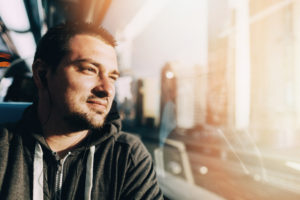 “We all make choices, but in the end our choices make us.” —Ken Levine
“We all make choices, but in the end our choices make us.” —Ken Levine
Many parents of young children and teens think the fewer choices they give their children, the better. They feel they should decide what’s best for their kids and not confuse them with too many options. I took a different approach when my children were growing up: I would routinely let them choose between different foods, activities, and chores. Through experience, they learned some of their choices would turn out well, others not as well. Today, as adults, they are both quite capable of making choices and dealing with the consequences.
Understanding at the outset that not every choice will yield the desired outcome can help inform one’s expectations, including the possibility of these less desirable outcomes. Skillfully managing any unintended consequences is part of the process of decision-making.
How Do We Learn to Make Good Decisions?
Making a good decision requires us to know ourselves. We need to know the things we can live with, the things we cannot compromise on, and the things we can tolerate or get used to.
Sometimes facts can help us make decisions, and exploring the data available to us may be the easiest place to start. Who hasn’t made a list of pros and cons when trying to decide something? Of course, as appealing as such a list might seem, I find that it almost never leads to a good choice because the weight of each item on both sides depends on both obvious and subtle outcomes that might or might not happen and are ultimately almost impossible to compare. Still, it can be a helpful exercise, as it lays out some points to consider.
Data and facts may be helpful in some cases, but all the data in the world can’t compete with the unconscious drives and preferences that often determine how happy we will be with any given choice. We might prefer to focus on factual information when it comes to choosing which mutual fund to invest in, for example, but perhaps not when it comes to choosing a mate, career, place to live, or even what to have for dinner.
If these drives are unconscious, we might wonder what hope we have of unearthing them, but I say we have plenty of hope. We can look at past decisions and their consequences to see how making those choices felt and how they’ve sat with us over time. We might enlist the help of someone who knows us well—a close friend, relative, or therapist—to tease out some personal themes or preferences we might have overlooked.
Keep in mind: If you ask a number of people for help and they all say something similar, you can be pretty sure there’s some useful information there. Conversely, if they all say something different, you may want to consider their counsel carefully before taking any one person’s advice.
It’s often not enough to just rely on intellect. Our hearts and guts have their own ways of knowing things, and they deserve some say in the process, too. Trusting our intuition, or gut, even when all the information tries to lure us to the other side is an acquired skill that can take decades to assimilate. Learn to be patient with yourself as you navigate life from one choice to the next and gain a deeper confidence in your gut feelings.
Another helpful strategy in the process of decision-making is looking back on the past. Which actions brought us joy? Which left us sad, lonely, or unfulfilled? As we look back, we may notice some themes emerging. This is where keeping a journal, especially a joy journal, can be very helpful. We can look back and notice which things consistently brought us joy. There will be patterns. Perhaps the best times were with family, or alone, or playing tennis. By determining those things that historically gave us the most pleasure, we may be able to better assess what might also lead to our happiness in the future. Resist the urge to make a decision based on what looks good, right, sensible, or mature. When it comes to the biggest decisions in life—education, a partner, where to live, finances, health, family, and so on, the trick is not trying to make the right decision. There is no right decision.
One of my favorite decision-making techniques is to ask myself, If I do or don’t do X, Y, or Z, how might I feel five, 10, or 20 years from now? Once again, the answer may come as a gut feeling, not a list of all the great reasons in favor of one particular choice. Trusting your gut takes guts. It means you trust that ineffable combo platter of heart, head, and experiences often coded in bodily feelings. This is not nearly as strange as it sounds. Candace Pert, author of Molecules of Emotion, found receptor sites on every cell of the body for information from the limbic system in the brain (where your emotions are generated).
It is helpful to remember we have all sorts of different parts. One part may want one thing, another part may want another, and so on. Giving voice to these different parts, especially if they are polarized and have opposite desires, can be incredibly helpful as we attempt to make decisions. You can learn about parts work, or Richard Schwartz’s Internal Family Systems theory, through YouTube videos or books, such as Schwartz’s Internal Family Systems Therapy or Jay Earley’s Self-Therapy.
It is also possible to explore one’s less conscious parts though journaling, dream analysis, art therapy, or Emotional Freedom Technique (also called tapping).
Any Decision Can Be the Right Decision
Resist the urge to make a decision based on what looks good, right, sensible, or mature. When it comes to the biggest decisions in life—education, a partner, where to live, finances, health, family, and so on, the trick is not trying to make the right decision. There is no right decision. Just make a decision. Indecision can feel like a numbing limbo that we can’t escape. Once we make a decision, we at least have something to work with. Perhaps we will be happy with our decision, but we might also feel neutral, or even displeased. If the latter, well, at least we have created a great learning experience for ourselves.
Sometimes, we might feel as if we are letting possibilities marinate, when actually we are procrastinating with decision-making. It can be hard to discern the difference. We are the only ones who can say for certain whether we are indecisive because we are avoiding the decision or procrastinating or because we simply want to weigh the options more carefully. Take your time—if you’re still assessing. If you’re avoiding a decision because you’re afraid of making a mistake and if that’s been a theme for you in the past, you may want to talk to a therapist.
The good news is this: Every decision, no matter the outcome, will have some benefit, even if it’s only that we learn to avoid a similar choice in the future. The habit of making decisions builds resilience. Avoiding committing to one thing or another is a decision in itself, true, but this practice can feed a lack of self-confidence. Doing difficult things is the royal road to building self-confidence, and making choices builds a sense of agency in the world, helping us feel more competent and confident.
Reference:
Pert, C. B. (1999). Molecules of emotion: The science behind mind-body medicine. New York, NY: Touchstone.

The preceding article was solely written by the author named above. Any views and opinions expressed are not necessarily shared by GoodTherapy.org. Questions or concerns about the preceding article can be directed to the author or posted as a comment below.

 3 Red Flags You're About to Make a Decision You'll Regret
3 Red Flags You're About to Make a Decision You'll Regret ‘I Don’t Know Who I Am’: Establishing Your Sense of Self
‘I Don’t Know Who I Am’: Establishing Your Sense of Self Making the Right Choice in the Face of Difficult Decisions
Making the Right Choice in the Face of Difficult Decisions

